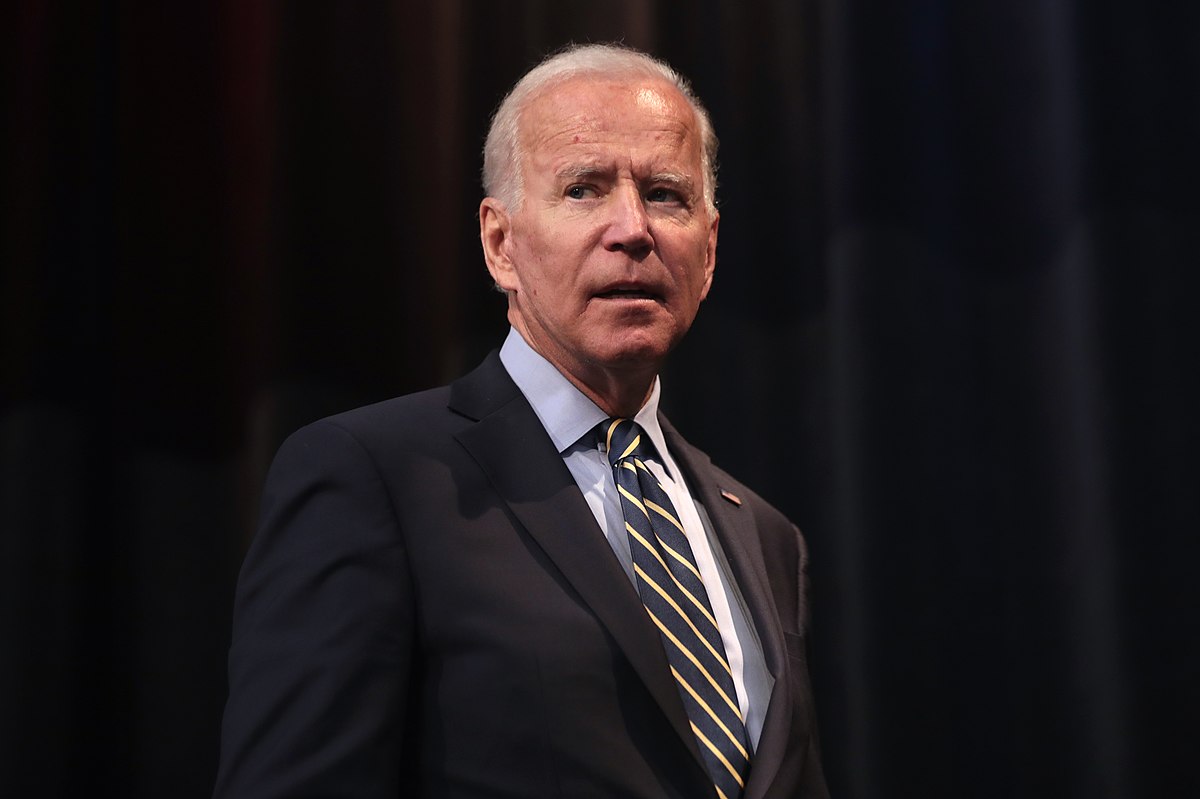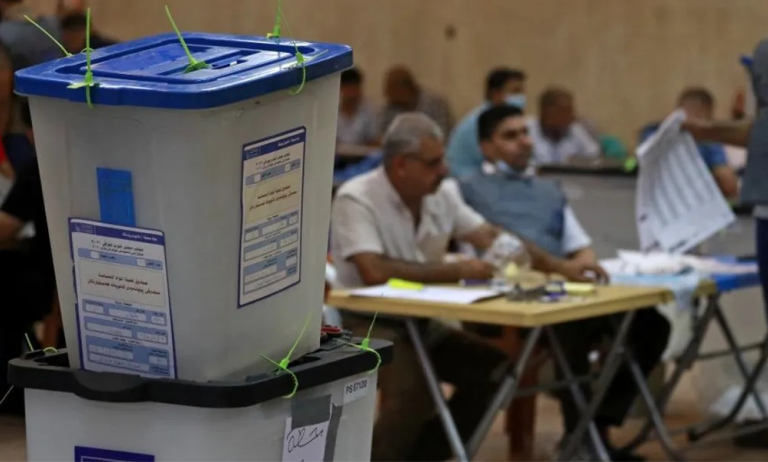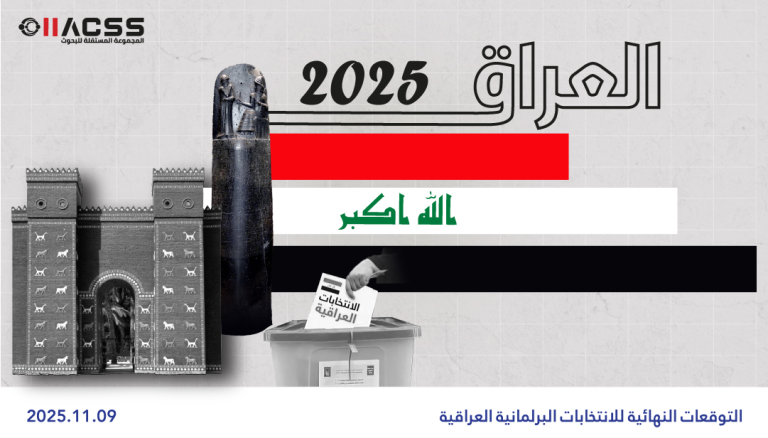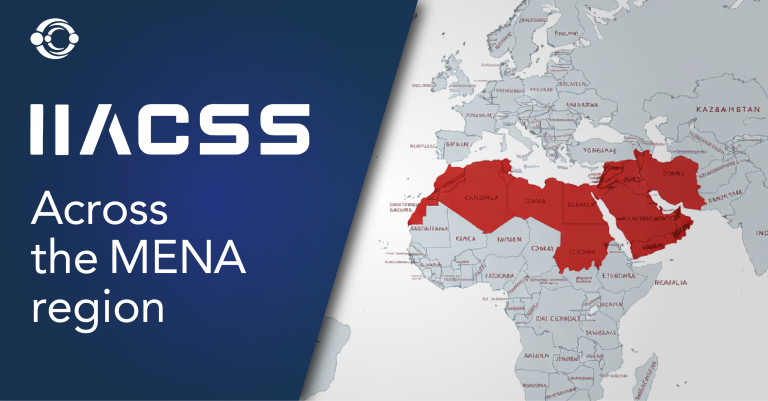متاح أيضاً في English
منقذ داغر
الدكتور منقذ داغر هو مدير منطقة الشرق الأوسط وشمال أفريقيا وعضو مجلس إدارة مؤسسة جالوب الدولية.
13 تشرين الثاني/نوفمبر 2020
انقسمت شعوب منطقتنا مرة أخرى حول الانتخابات الأميركية التي جرت مؤخراً. فالمساندون لترامب يعتقدون أن بقاءه سيضمن تقليص النفوذ الإيراني في المنطقة وربما إسقاط النظام نفسه. أما المناصرون لبايدن، فهم يرون أن إزاحة ترامب سيفيد القضية الفلسطينية ويقوّي “محور” المقاومة (إيران، وسوريا، وحزب الله) من خلال رفع العقوبات المفروضة على إيران، والعودة للاتفاق النووي. والخبر السيء لكِلا الفريقين انهما سيصابان بالإحباط من سياسة بايدن في المنطقة، كما لا يبدوا انه سيكون هناك تغييرات كبيرة في موقف الإدارة الامريكية المقبلة من ملف مكافحة الإرهاب وتواجد القوات الامريكية في المنطقة.
أن أفضل من يمكنه توقع سياسة بايدن الخارجية هو بايدن نفسه، حيث نشر الرئيس المنتخب مقالاً في مجلة الشؤون الخارجية، في ربيع هذه السنة لخص فيه سياسته الخارجية إذا تم انتخابه. جاء المقال تحت عنوان (لماذا يجب على أمريكا أن تقود ثانيةً، إنقاذ سياسة أميركا الخارجية بعد ترامب).
وتحليلي هذا سيستند غالباً على ما قاله بايدن في هذا المقال، فبقدر ما يبدو من مقالته، فإن سياسة بايدن الخارجية ستستند إلى مجموعة معينة من المبادئ. لكن يجب التنبيه أولا الى أن ذِكرْ هذه المبادئ لا يعني إيماني أنها ستطبق كما قالها حرفياً، فبايدن هو أحد أنصار المدرسة البراغماتية ويؤمن بالواقعية. لذلك هو يبتدأ مقاله بالقول أن ” الرئيس القادم عليه أن يتعامل مع الواقع كما هو عليه في عام 2021، ويحاول لمّ شتات ما خلفته الرئاسة السابقة”.
سياسة بايدن الخارجية واضحة
سيسعى بايدن الى إعلاء قيم الديمقراطية والليبرالية كمحور للعلاقات مع الدول الأخرى، حيث كتب قائلا، “كرئيس سأقوم بخطوات فورية لتجديد الديمقراطية الأميركية وحلفاءها، فقد أدى انتصار الديمقراطية والليبرالية على الفاشية والاستبداد إلى خلق عالمًا حرًا “. ومن الواضح أن إدارة ترامب ستجعل معيار تطبيق الديمقراطية أساسا حاكماً في علاقاتها مع الدول. لذا يمكن توقّع سياسات تدخلية في الدول التي ستصنف أنها معادية للديمقراطية، على هذا الأساس. إن الدول التي تشهد مزيداً من الاحتجاجات والمظاهرات (كالعراق ولبنان وإيران) عليها أن تتوقع ضغوط أمريكية أكبر مستقبلاً، وان تطبيق مبادئ الديمقراطية والحكم الرشيد ومكافحة الفساد سيكون مفتاح علاقاتها مع الولايات المتحدة.
وقد كان بايدن واضحاً في ذلك حين قال: “من هونغ كونغ إلى السودان، ومن تشيلي إلى لبنان، يذكّرنا المواطنون، مرّة أخرى، بالتوق المشترك إلى الحكم الرشيد، والبغض العالمي للفساد الذي وصفه بأنه “وباء خبيث، يؤجّج القمع، ويقوّض كرامة الإنسان، ويزود القادة الاستبداديين بأداة قوية لتقسيم الديمقراطيات وإضعافها في جميع أنحاء العالم، ويبدو أن ترامب ينتمي إلى الفريق الآخر، ويأخذ كلام المستبدّين بينما يظهر ازدراء الديمقراطيين، من خلال ترؤسه أكثر الإدارات فسادًا في التاريخ الأميركي الحديث، فقد منح الرخصة للفاسدين في كل مكان”.
السياسة لا الاقتصاد هي من ستقرر سياسية بايدن الخارجية، حيث تميزت حقبة ترامب بتقديم الاقتصاد ومنافعه على السياسة ومبادئها. أما بايدن فأن سياسته الخارجية ستقوم على اعتبار مبادئ السياسة-كما يؤمن بها-هي التي تقود لازدهار اقتصادي، لذا فهو يقول “أن الديمقراطية هي ليست أساس المجتمع الأمريكي بل هي أساس قوة أمريكا. أنها تعزز من قيادتنا للعالم لإبقائه آمناً. أنها المحرك الأساس الذي يقود الاقتصاد المزدهر”.
وهذا لا يعني بالضرورة إهمال الاقتصاد بل يعني كما يعتقد بايدن ازدهار اقتصادي أكبر لكن من خلال مقاربة مختلفة قوامها العولمة من جهة والسياسة التي تعزز دور الطبقة الوسطى والإبداع من جهة أخرى. وفى هذا الصدد، كتب بايدن قائلا (أن إدارتي ستهيأ أمريكا للتقدم في مجال الاقتصاد الدولي مع تركيز السياسة الخارجية على تعزيز دور الطبقة الوسطى. وللفوز بالمنافسة الاقتصادية مع الصين، لذلك، يجب على الولايات المتحدة شحذ قدرتها الابتكارية وتوحيد القوة الاقتصادية للديمقراطيات حول العالم لمواجهة الممارسات الاقتصادية التعسفية وتقليل عدم المساواة”. واضح أن المنافسة مع الصين ستكون لها أولويه أيضا في عهد بايدن لكن من خلال مقاربة مختلفة تقوم على مبادئ الليبرالية والقيادة بالإبداع، وليس مبادئ سياسات الحماية والحرب الاقتصادية.
وتمشيا مع هذا النهج الأقل عدائية، ستقود الولايات المتحدة العالم من خلال العولمة لا الأمركة. لقد قامت سياسة ترامب على شعار أميركا أولاً والذي ترجمته إدارته بمزيد من الإجراءات الإغلاقية. لذا فقد تلقت العولمة ومبادئها ضربة قاسية على يد ترامب. ويبدو الحال معكوس تماماً في زمن بايدن الذي يبشر بالعودة الى السياسات الأميركية المعولمة والتي تقود فيها الولايات المتحدة المنظومة الدولية بدلاً من التنكر لتلك المنظومة والانسحاب من منظماتها واتفاقاتها الواحدة تلو الأخرى. وفى هذا الإطار يقول بايدن “أجندتنا الخارجية ستركز على عودة أمريكا إلى المقدمة من جديد لتعمل مع الشركاء والحلفاء لتعزيز العمل المشترك ضد التهديدات الدولية… إعادة تحالفاتنا القديمة وتعزيز دور الولايات المتحدة في الناتو. أن دور أمريكا في الناتو مقدس ويكمن في قلب وصميم الأمن القومي الأمريكي“.
من المتوقع أن تأخذ الدبلوماسية الأولوية وفقا لنهج العولمة الذي يتبناه بايدن، حيث انتقد الإفراط في استخدام إدارة ترامب للقوة الخشنة المتمثلة بقوتها العسكرية. وفي الوقت الذي لا يستبعد فيه بايدن استخدام القوة العسكرية كإحدى أدوات السياسة الخارجية فهو يشدد على إيلاء الدبلوماسية القدح المعلى في السياسة الخارجية لذا فهو يقول ” لقد اعتمدت سياسة ترامب الخارجية على التفوق العسكرية وبشكل وحيد وإهمال عناصر القوة الامريكية الأخرى واهمها إهمال دور الدبلوماسية”.
لكن على الرغم من تركيز بايدن على أهمية التواصل والدبلوماسية العالمية، إلا أن حديثة عن عودة أجواء الحرب الباردة كان لافتاً في أكثر من موقع في مقاله على روسيا باعتبارها (تحت قيادة بوتين) مناهضة لكل القيم التي يؤمن بها. وإذا أخذنا بالاعتبار دعم بايدن وأبنه لأوكرانيا فيمكن أن نفهم هذا التشدد في موقفه تجاه روسيا والذي يعيدنا الى أجواء الحرب الباردة وتداعياتها.
ومن ثم، يؤكد بايدن على أهمية إعادة النشاط لحلف شمال الأطلسي ودور أميركا في قيادته وهذا ما يتناقض مع السياسة التي اتبعها سلفه طيلة السنوات الأربع الماضية. وفى هذا الإطار، كتب بايدن قائلا” يجب فرض كلف وتبعات حقيقية على روسيا لانتهاكها المعايير الدولية ونقف مع المجتمع المدني الروسي…إن بوتن يحاول إقناع نفسه والأخرين أن فكرة الليبرالية قد انتهت صلاحيتها، لكنه يفعل ذلك لأنه يعلم أنها أكبر تهديد لسلطته”. كما أكد بايدن على(قدسية) دور حلف الناتو الذي تأسس لمجابهة التهديد السوڤيتي كدليل آخر على احتمال العودة لأجواء الحرب الباردة. ويبدو أن روسيا تعلم ما ينتظرها في عهد بايدن لذا نجد أنها (والصين أيضا) من بين دول قليلة لم تبارك لبايدن فوزه بالانتخابات.
خلاصة القول فأن السياسة الخارجية لأمريكا في عهد بايدن ستتحرك في مثلث متساوي الأضلاع رسمه بايدن لنفسه: “أن أولويات السياسة الخارجية الأميركية سيحكمها مدى التزام أي دولة في مجالات ثلاث هي: مكافحة الفساد، محاربة الحكم التسلطي، وتعزيز حقوق الإنسان داخل وخارج تلك البلدان”.
بايدن والشرق الأوسط
يبدو أن ملفات الالتزام بالديمقراطية والليبرالية وحقوق الإنسان ومكافحة الفساد (بالمفاهيم البايدنية) ستحكم سياسته في الشرق الأوسط أيضا. لذا وعلى الرغم مما قاله لي أحد مستشاري حملة بايدن بخصوص الشرق الأوسط من إنه لن يعير أهمية كبرى لهذه المنطقة وأنها لن تكون في قمة أولوياته، أقول بالرغم من ذلك، ومما لا شك فيه أن الملفات أعلاه ستحظى باهتمام واضح بخاصة في تلك الدول التي ستشهد عودة التظاهرات والاحتجاجات الشعبية التي شهدها خريف2019 وشتاء 2020 وأقصد بها العراق، ولبنان وإيران، والتي ربما تنضم لها دول أخرى مستقبلاً. وستتعرض تلك الدول لضغوط أمريكية متزايدة لضمان حرية التعبير ومكافحة الفساد ومراعاة حقوق الأنسان.
إضافةً لذلك فقد ركز بايدن في مقاله على أربع ملفات مهمة له في المنطقة هي: مكافحة الإرهاب، أمن إسرائيل، إيران، والعلاقة مع السعودية.
سيبقى القضاء على التنظيمات المتطرفة في قمة أولويات السياسة الخارجية الامريكية. ونظراً للعلاقة التي ستتحسن بين أوربا وأمريكا فيتوقع ألا يقل اهتمام إدارة بايدن بمحاربة القاعدة وداعش عن أسلافه، لكن وفق مقاربة عسكرية يعتقد بايدن أنها أكثر ذكاءً. “يجب إعادة معظم قواتنا من أفغانستان والشرق الأوسط وإعادة تعريف مهمتنا هناك وبشكل أضيق لتكون دحر القاعدة وداعش … إن بإمكاننا أن نكون أقوياء وأذكياء في ذات الوقت. هناك فرق كبير بين إرسال وحشد قوات عسكرية كبيرة ولمدى مفتوح وبين استخدام بضع مئات من القوات الخاصة والاستخبارات لدعم شركاءنا المحليين ضد عدونا المشترك”.
واضح من هذا النص أن بايدن لن ينشر أي قوات إضافية في المنطقة بل انه سيستمر في سياسة ترقيق القوات الأميركية التي بدأها سلفه. ولا تبدو سياسة بايدن مختلفة عن ترامب، فهو أيضا يميل الى الاحتفاظ بأعداد قليلة من القوات الخاصة وجهد استخباري أمريكي يمكنه أن يساعد الشركاء المحليين على محاربة التنظيمات المتطرفة.
أما في الملف الإسرائيلي، فأن بايدن مصنف تقليدياً بأنه واحد من أكثر الساسة الأمريكان تشدداً في الدفاع عما يعتقده أمن إسرائيل. لذا فقد شدد على ذلك بوضوح في مقاله حين قال “يجب التشديد على حماية أمن إسرائيل”. لذا فأن الفرح الذي أظهره كثير ممن يُسمَّون بأنصار (محور المقاومة) لا يبدو مبرراً إطلاقاً. ولا يبدو أن الإدارة الجديدة ستكون اقل حماساً تجاه إسرائيل من سلفها. لذا نجد أن نتنياهو وبرغم علاقته الممتازة مع ترامب كان من بين أوائل من هنئوا بايدن بفوزه. وان الأنباء الراشحة من حملة بايدن تشير الى عدم وجود نية لدى الإدارة الجديدة للعودة عن قرار نقل السفارة الامريكية الى القدس وهو القرار الذي كان يعتبره أنصار (محور المقاومة) أكبر دليل على انحياز إدارة ترامب لإسرائيل.
أما في الملف الإيراني فيبدو بايدن عازماً على إعادة الحياة للاتفاق النووي لوقف سعي إيران لامتلاك سلاح نووي وهو ما يعتقده أولوية قصوى لإدارته، حيث قال “وكرئيس للولايات المتحدة، سأجدد التزامنا بالحد من التسلح في عهد جديد. حيث كان الاتفاق النووي الإيراني التاريخي الذي تفاوضت عليه إدارة أوباما-بايدن قد منع إيران من الحصول على سلاح نووي. ومع ذلك، وبتهور شديد انسحب ترامب من الاتفاق، مما دفع إيران إلى إعادة تشغيل برنامجها النووي وأصبحت أكثر استفزازاً، مما زاد من خطر اندلاع حرب كارثية أخرى في المنطقة، … يجب أن تعود طهران إلى الامتثال الصارم للاتفاق “.
ومع ذلك يجب الانتباه الى أن استئناف المفاوضات سيكون مهمة صعبة مع إيران في عام 2021، فقد يطالب المفاوضون الإيرانيون قبل بدء المفاوضات برفع جميع العقوبات الأمريكية، حتى تلك التي لا علاقة لها ببرنامجها النووي والتي تتعلق بالإرهاب والفساد وحقوق الإنسان وقضايا أخرى. وقد تكافح إدارة بايدن للتعامل مع مثل هذا الطلب وذلك في ظل تأكيدها المستمر على حقوق الإنسان.
كما ستكافح إدارة بايدن أيضًا لإحداث أي تأثير على برنامج الصواريخ الباليستية الإيراني أو أنشطتها الإقليمية المزعزعة للاستقرار، وذلك على الرغم من الخطر الكبير الذي تشكله هذه التهديدات. وفى ظل بيئة عدم الثقة الذي تشوب العلاقات بين البلدين، سيتعين على الإدارة الجديدة التعامل مع كل هذه القضايا. وحتى لو أثمرت الجهود المبذولة عن التوصل لاتفاق مبدئي بين الطرفين إلا أن هناك عقبة كأداء متوقعة وهي إصرار الجانب الإيراني هذه المرة على أخذ ضمانات من إدارة بايدن بان الاتفاقية لن يتم إلغائها من قبل أي رئيس أمريكي قادم. وحتى لو وافقت إدارة بايدن على هذا الطلب فأن ذلك سيتطلب بالتأكيد موافقة الكونغرس الذي يسيطر فيه الجمهوريون على مجلس الشيوخ مما يجعل موافقتهم شبه مستحيلة.
الملف السعودي. يبدو واضحاً أن بايدن لديه مواقف سلبية مسبقة من السعودية تتمحور حول ملفي حقوق الإنسان والحرب في اليمن. فقد ذكر بايدن في احدى المقابلات أثناء حملته الانتخابية انه سيجعل السعودية تدفع ثمن اغتيالها الصحفي جمال خاشقجی، لذا اعتبرت خطيبة خاشقجی أن فوز بايدن هو هدية من السماء لتحقيق العدالة في مقتل خطيبها. كما أن بايدن انتقد في مقاله الحرب التي تقودها السعودية ضد اليمن وقال (ويجب أن نوقف دعمنا للسعودية في حربها في اليمن.
مع ذلك وبناءً على الواقعية التي يؤمن بها بايدن فأن من المثير رؤية ما إذا كانت إدارته ستضحي بتحالفها الممتد لقرن من الزمن مع السعودية فضلاً عن مصالحها الاقتصادية الهائلة من أجل الانتصار للمبادئ التي يؤمن بها بايدن!! هذا فضلاً عن الدور المحوري الذي تقوم به السعودية الآن في تطبيع العلاقات بين دول المنطقة وإسرائيل وبناء تحالف جدي ضد إيران. هذا الدور سيضع بالتأكيد كوابح مهمة على أي تفكير لاتباع سلوك أمريكي متشدد في مواجهة السعودية. ويبدو أن إدراك السعودية لعمق المصالح المتبادلة مع أميركا، ودورها المحوري في المنطقة هو الذي دفعها لتكون من بين المهنئين لبايدن على الرغم من علاقاتها المميزة مع ترامب، والتذكير في برقية التهنئة بالتحالف القائم بين البلدين لقرنٍ من الزمن.
ختاماً، وعلى الرغم من أن من المبكر إعطاء حكم نهائي على سياسة إدارة بايدن في العالم، لكنها وان كانت ستشهد تغييرات كبيرة في ملفات دولية أساسية، فأنها لن تشهد على الأرجح، تغييرات كبرى في الملفات الأساسية الثلاث في الشرق الأوسط (مكافحة الإرهاب، أمن إسرائيل والملف الإيراني). أما فيما يخص السعودية فيبدو أننا سنشهد مزيجاً من الواقعية السياسية ومبادئ الديمقراطية وحقوق الإنسان عند التعامل مع هذا الملف.







